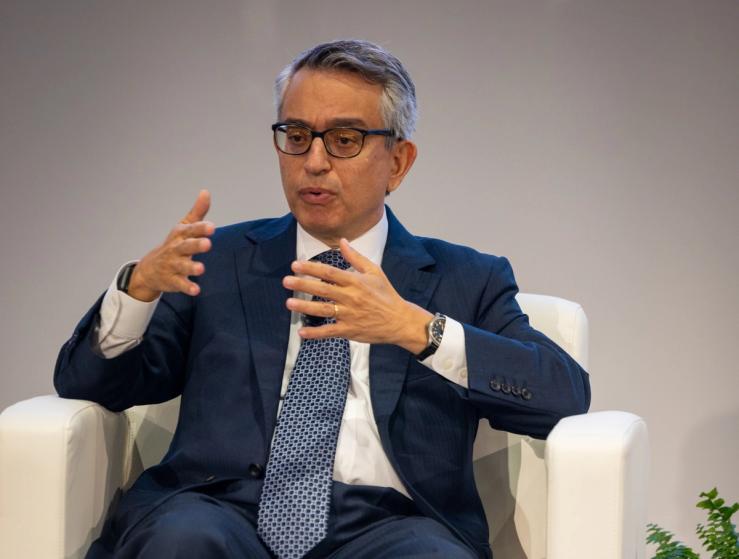The Scene
One of the world’s biggest infrastructure investors has sat out the AI data center boom — and thinks those diving in may end up regretting it.
I Squared Capital isn’t squeamish: It has backed Indian toll roads, Malaysian solar farms, and refrigerated warehouses in the Philippines. But the current rush into AI infrastructure — on the promise that Microsoft, Google, or other hyperscalers are rock-solid offtakers— is too rich for CEO Sadek Wahba’s blood.
“The usage is still unproven. Are these AI models going to be profitable? I don’t know,” Wahba, whose firm manages $50 billion, said in an interview. “When you start unpeeling the onion, it’s much more volatile and uncertain.”
Data centers’ huge needs for power, water, and industrial components that are in short supply — anyone needing one of GE Vernova’s gas turbines will have to wait until 2028 — add to the risk, Wahba said.
“I don’t have this sense of the input, which is the technology and how fast it’s going, and the output, which is … it may replace [millions of workers] or may in fact do absolutely nothing,” he said. “I politely decline.”
Know More
It’s not clear yet whether there are enough paying customers to generate the revenue needed to justify all this spending. Bloomberg Intelligence analysts expect big US tech companies to shell out more than $500 billion in 2026 on AI — sums that so far they have been able to fund out of their profits, but they’ve started to borrow to keep the deals going.
“The question is: When will the revenue show up from gen-AI? If it doesn’t show up in 2027, that’s when you could have an air pocket,” Mandeep Singh, an analyst at Bloomberg Intelligence, said in an interview.
If the demand for AI doesn’t meet the hype, some worry whether the compute contracts signed with companies like OpenAI are as ironclad as they look. “Good luck enforcing that,” one financier tells Semafor. “Maybe you’ll get your money, but it’ll be eight years later in court.”


